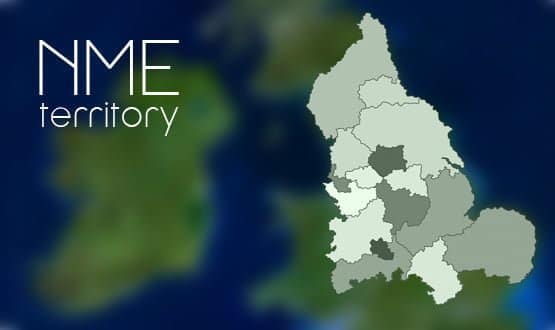NME territory
- 10 April 2013

When the many critics of the National Programme for IT in the NHS talk about it as a ‘failure’, they tend to be thinking of its failure to deliver electronic patient record systems to trusts.
And, in particular, they tend to be thinking of CSC’s failure to deliver Lorenzo to more than a handful of trusts in the North, Midlands and East of England, for which it became the sole local service provider after Accenture’s high-profile exit from the programme in 2007.
This has made the Department of Health’s protracted negotiations with the company over a revised deal for the NME endlessly controversial. Yet, until now, details of the ‘interim’ deal that the DH reached with the company last September have been hard to come by.
Three deals become one
In an exclusive interview with EHI, Tim Donohoe, the senior responsible owner for the local service provider programmes, says he wants to change this.
Over the course of an hour at one of the Department of Health’s outposts at Skipton House in London, he explains why the deal is ‘interim’ and what he hopes it will achieve.
“It’s interim because what we envisage is moving away from these contracts [CSC’s original LSP deal and the two it picked up from Accenture] to a single contract with CSC,” he says.
“Administratively, that is much easier. We’re also trying to simplify the contractual mechanisms, which over time have become completely archaic, not well understood except by a privileged few on either side of CSC and the DH.”
Donohoe hints that publication of the interim agreement was considered. But, he says: “One of the reasons why we didn’t just publish the IA was because it cross references the previous contracts in so many ways that it would be meaningless to read that without having the other contracts beside it.”
Of course, plenty of EHI readers would still be very interested to see the business cases drawn up by NPfIT and the contracts that came out of them. But even now this seems unlikely. Donohoe says: “We are very keen to make this a more transparent process as we move forward.”
Dilemmas on both sides
Donohoe inherited the deal from Katie Davis, the last managing director of NHS informatics, who announced she was leaving in July last year.
Davis had taken over from Christine Connelly, who had tried to get the programme back on track after Richard Granger, the first director general of NHS IT, and the man who did both the original and revised LSP deals, completed his long “transition” out of post.
In April 2009, Connelly told the two remaining LSPs – BT and CSC – she wanted to see “significant progress” on getting information systems into the acute sector.
While BT met its deadlines, CSC missed its key deadline to get Lorenzo “working smoothly” across University Hospitals of Morecambe Bay NHS Foundation Trust, and then saw the first mental health early adopter, Pennine Care NHS Foundation Trust, withdraw in April 2011.
Despite this, Morecambe Bay eventually declared that Lorenzo “works” and Pennine Care’s place was taken by apparently enthusiastic Humber NHS Foundation Trust. One way or another, Donohoe says that when the DH and CSC came to negotiate the IA, both faced a dilemma.
“When Accenture pulled out, Granger decided that CSC could not have full exclusivity of provision across these three areas,” he says.
“So, given that they had exclusivity in one area, he gave it to them in a second area, but told them that in the third area [the East of England] other providers could basically sell-in.
“That meant that of the 220 trusts in those regions, CSC had exclusive rights to implement the system at 160 of them. Had CSC successfully delivered Lorenzo, the NHS would have had to stand up 160 trusts and name them and make them available.
“CSC knew full well that it was unlikely in the changed environment that we could give them 160 trusts, but equally we knew that in the remaining contract term it was very unlikely hat CSC could deliver 160 trusts.
“And that remains the case. So, avoiding the legal dispute that would have ensued from that was a key reason for doing the deal.”
Benefits extend beyond legal clarity
In other words, Donohoe insists the IA was a good deal because it avoided the kind of legal dispute that has still to be resolved from Fujitsu’s 2008 exit as LSP in the South of England.
Indeed, he says that any legal action in the NME would have been even harder to resolve than it has proved in the South, since CSC deployed so many ‘interim’ systems to trusts that urgently needed new IT, and to community providers and GP practices, when it became obvious that Lorenzo’s functionality would never extend to them.
“Some of those systems, like TPP, have, over time, become a strategic solution for a number of trusts,” he points out. Sorting out these deals would have been a “massive risk” for the NHS, and was another driver for agreeing the IA.
However, Donohoe clearly believes that the IA has other positive aspects. For a start, he says, it gave NME trusts – some of which had started to peel off and run their own procurements – more certainty about the future.
Plus, it addresses the “underspend” left by the national programme, which never spent anything like all of the money intended for ‘strategic’ systems.
Funding and incentives
Some of the mechanisms for getting unspent money to trusts have proved even more controversial than the deal itself, though.
EHI revealed in December that the first nine trusts to take Lorenzo will receive £1m from a ‘Lorenzo incentive fund’ on top central funding for service and deployment costs, which is paid after the costs have been incurred.
In total, this adds up to a significant amount of “free” money. Board papers recently released by The Ipswich Hospital NHS Trust indicate that it expects to receive a total of £14m to pay for its Lorenzo implementation.
Needless to say, a number of rival companies have cried “foul” – not least because a number of cash-strapped trusts have stopped other deployments to at least have a look at what is on offer.
Despite this, Donohoe argues that the IA introduces more rigour to the process, because trusts have to produce a business case that “shows a return on investment” of around 2.5 times to get their central funding, which was not the case under the original NPfIT process.
He also says that the first four trusts to take the system will act as a further “test bed” to make sure that CSC does not over-commit itself. As far as the £1m is concerned, he says that money is coming from CSC; and that it is not an incentive to take the system but to sign off on it quickly.
“Effectively, CSC didn’t want to get into a position where accelerated timescales meant that trusts were keeping them on at the back-end of a project and refusing to sign it off as successfully deployed, because they feared letting the CSC resource go,” he says.
“Our view of that was that this was money that otherwise would be lost to the public purse. But I guess we didn’t think about how it would be perceived, which is why I’m very keen that it’s not seen as us pushing Lorenzo.”
Despite the kerfuffle, Donohoe thinks that in the end there will be plenty of business for everyone. “A message I’m keen to get out to trusts is that getting funding [under the new business case model] is not easy, so don’t abandon procurements because you think you will get funding from the deal,” he says.
“The pots of money allocated to additional support will eventually run out. What we agreed was that we’d do that for the first 22 trusts. If they achieve more than that, after 15 trusts we’ve agreed to review the funding position.
“If we get to 22 and all the money for the additional funding has gone, trusts will be entering into further deployments of Lorenzo on the basis that there is only central funding for service and deployment. There’s no specific benefit to having more trusts take Lorenzo, we just want trusts to take it if it’s right for them.”
Meanwhile, he adds: “I fully understand the suppliers’ position, but we’re never getting from where we were to where we want to be in a few years’ time without some short-term impact on the market.”
All coming to an end very soon
Donohoe says trusts in the NME are now facing a pressing issue as the LSP contracts are coming to an end, and that there is an urgent need for trusts to take on new contracts.
“What that means is that we have a very real issue about when a contract ends on, say, 31 March, and the new arrangement starts on 1 April, all those new systems have to be migrated and that can’t happen overnight,” he says.
“The technical challenge is too great, the risk of disruption of service is too great so it’s really about bridging the gap and making sure we have sensible arrangements in place.”
While Donohoe wants trusts to start looking ahead, he also knows that the row about the CSC deal is not going to go away.
NHS chief executive Sir David Nicholson was due to appear in front of the Public Accounts Committee to defend the deal and the incentive payments last month; but the publication of the Leveson Inquiry cut the session short.
With Sir David now head of NHS England, his job as accounting officer for the programme has passed to the permanent secretary at the ‘new’, slimmed-down DH, Una O’Brien; which is why Donohoe is SRO for the LSP programme – and why he might be up before the PAC if it revisits the issue.
Nevertheless, he clearly believes the revised deal with CSC is a defensible deal. “Things have moved on, so big chunks of what CSC where going to do have moved on,” he says.
And he wants to see the NME starting to move on. “I’m tasked with looking at how we drive value from what’s left in the contract and how we realise the benefits that are still left to be had, but my main focus is how we engage with the trusts to make sure that there is continuity of provision with the end of the LSP contract, and the start of whatever new contracts come after that.”




